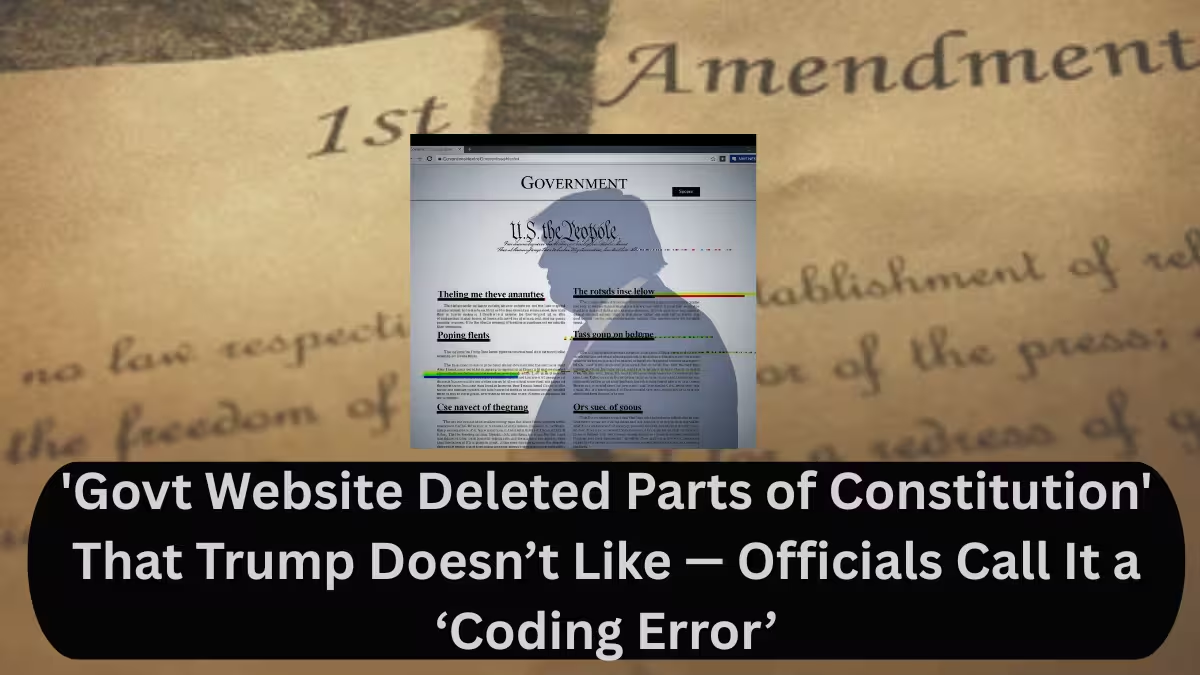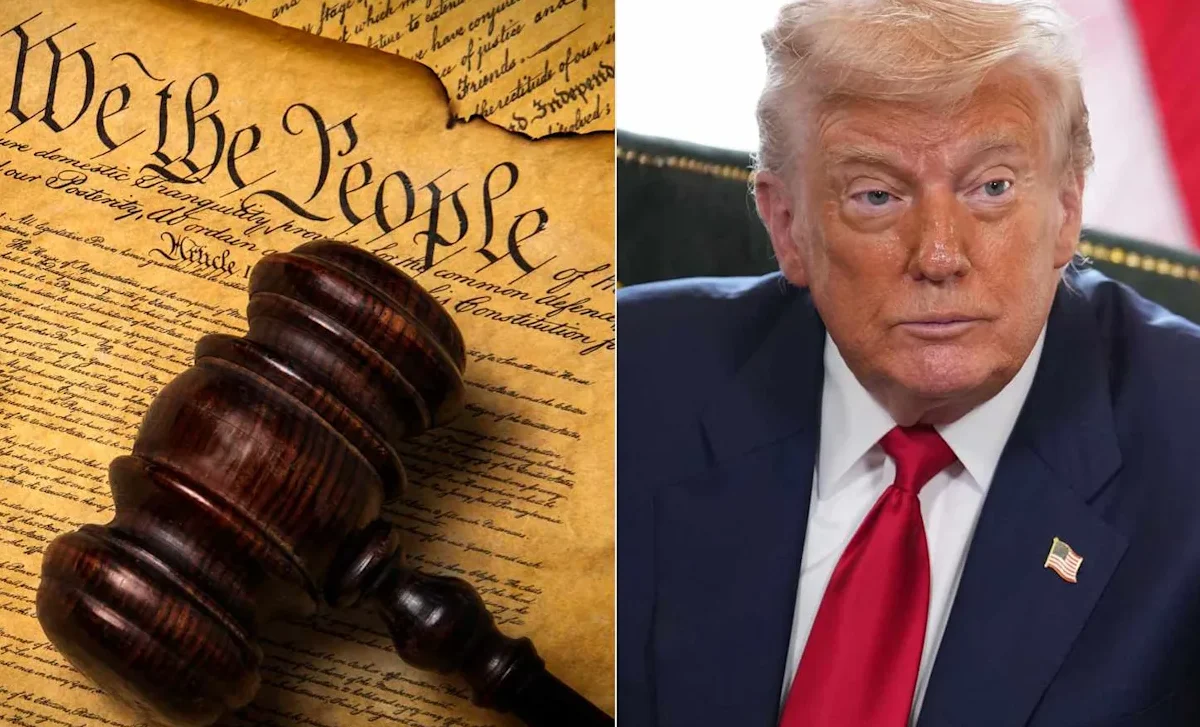
“Screenshot of U.S. Constitution with missing sections on a government website, showing digital glitch effect and faint silhouette of Donald Trump in background”
Published on: August 8, 2025 at 15:17
On August 6, 2025, visitors to the Library of Congress’s official Constitution website noticed something shocking: entire sections of the U.S. Constitution were missing. Specifically, Article I, Sections 9 and 10 — critical portions that limit federal and state power — had vanished without warning. These sections include clauses that Donald Trump and his allies have publicly criticized or ignored, such as the Emoluments Clause and Habeas Corpus protections. Officials later claimed it was a “coding error.”
What Exactly Was Deleted? Key Constitutional Protections

The missing sections weren’t minor technicalities. They were some of the most vital checks on government power, including:
-
Habeas Corpus: Protects against unlawful detention.
-
Bill of Attainder Clause: Prevents punishment without trial.
-
Ex Post Facto Clause: Stops retroactive criminal laws.
-
The Emoluments Clause: Bars federal officials from profiting via foreign governments.
-
Limitations on States: Article I, Section 10 prevents states from forming alliances, coining money, etc.
These are core American legal protections, and their sudden removal—even temporarily—raises deep concerns about transparency, intent, and digital access to democracy.
Pain Point:
Americans rely on government websites to access trustworthy information about their rights. A deletion—intentional or not—creates confusion, mistrust, and opens the door to misinformation.
Trump’s Role: Coincidence or Control?
Earlier this year, Donald Trump fired the previous Librarian of Congress, Carla Hayden, and replaced her with a political ally. The move was controversial in itself, but this incident only amplifies public suspicion.
While there is no direct evidence tying Trump to the deletion, the timing and content of the missing sections speak volumes:
-
These sections directly limit presidential power.
-
Trump has repeatedly criticized the Emoluments Clause and sidestepped oversight during his previous administration.
-
Critics argue this move might be part of a larger trend to reshape public institutions to align with political agendas.
Pain Point:
The integrity of non-partisan institutions like the Library of Congress is at stake. When political leaders are seen as influencing how history and law are presented, democratic erosion becomes a real risk.
Officials Say “Coding Error” — But Questions Remain
The Library of Congress quickly released a statement, calling the issue a “technical error during a migration of files.” They assured the public that the full Constitution has since been restored.
However, some digital experts and watchdogs argue that:
-
It’s highly unusual for only specific sections to vanish.
-
No prior notice, archive warning, or update logs were provided.
-
The error was not detected internally — it was caught by everyday users and reported on social media.
Pain Point:
When government transparency depends on citizen watchdogs rather than proactive oversight, trust begins to erode. Americans should not have to fear that their foundational rights might disappear due to a “technical glitch.”
Why This Matters for You: It’s Bigger Than Politics

Whether you support or oppose Trump, this issue is not just political—it’s about access to truth, digital accountability, and civic trust.
If the most important legal document in the country can be altered, hidden, or deleted from its official source—what else can be?
-
What if school textbooks or public records are next?
-
What prevents future administrations from “editing” history via websites?
-
How do we ensure the digital version of democracy is protected?
Pain Point:
The shift to digital governance must be accompanied by robust transparency safeguards. Otherwise, democracy becomes vulnerable to silent tampering.
Glitch or Warning Sign?
This wasn’t just about missing text. It was about the growing vulnerability of truth in a digital-first democracy. Whether it was a technical hiccup or something more calculated, it shows that public vigilance is more important than ever.
Have thoughts on this “coding error”? Drop a comment or share to keep this conversation alive. Democracy thrives when we ask the hard questions.
Disclaimer
This article is based on publicly available data, news reports, and industry analyses at the time of writing. All statistics, company names, and references mentioned are for informational purposes only. The content is intended for general awareness and does not constitute financial, investment, or policy advice. While we strive for accuracy, we recommend verifying key facts from official sources.






